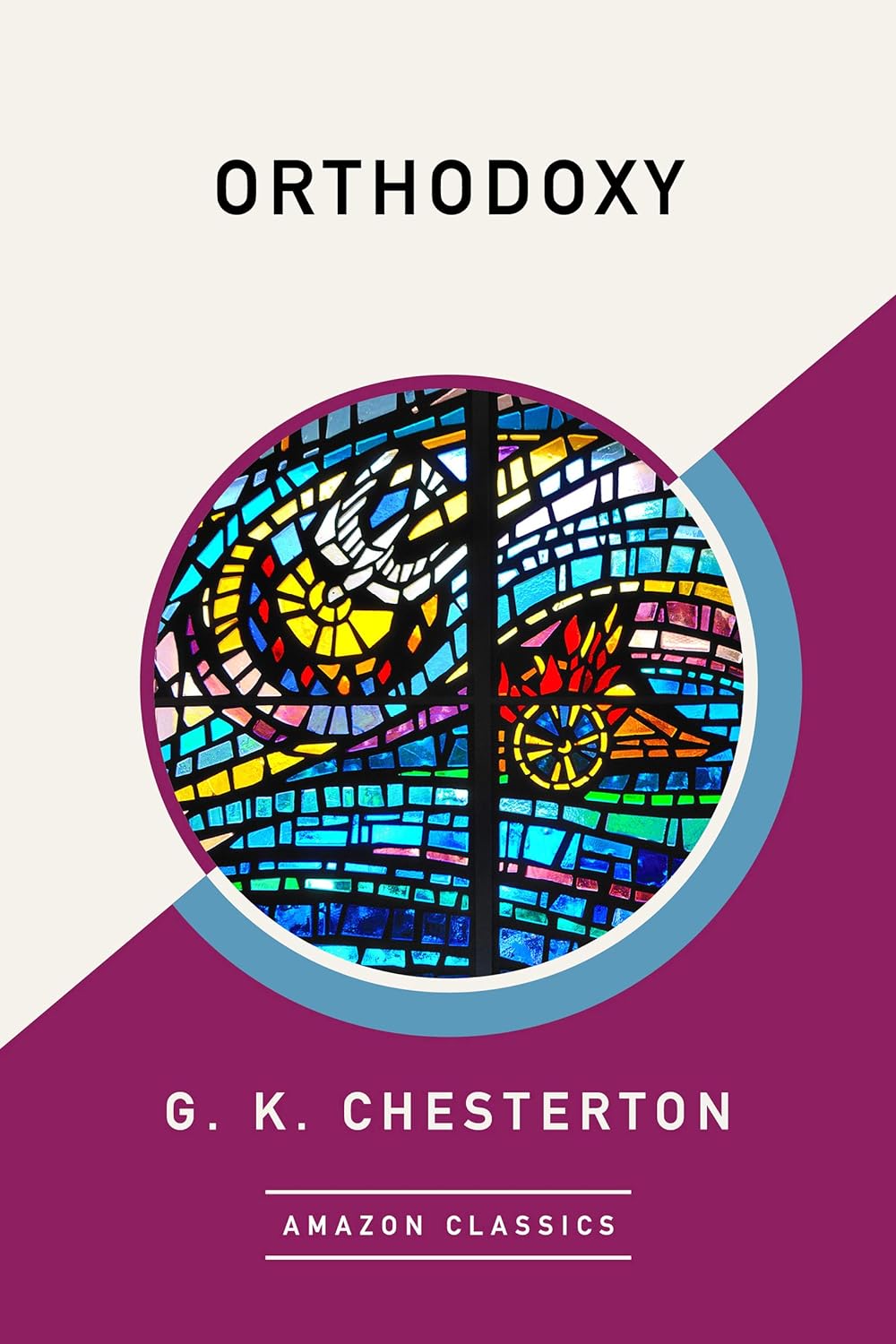Review: Orthodoxy

I have never read G. K. Chesterton. I knew of him, had heard many of his quotes, but never read any of his books.
I have to admire someone who begins with:
I have written the book, and nothing on earth would induce me to read it.
The best way I can think to describe Orthodoxy is that each chapter is like a meandering walk in a distinct forest. You wonder if the walk is worth it, or if you will discover anything of interest. And then, without fail, you stumble onto a treasure trove that you could not have imagined.
It safe to say that, with a title like Orthodoxy, and having not previously read any of his works, I was expecting something a lot more mundane and dry. I could not have been further from the truth. This is anything but mundane, and the only dryness is his infamous humour – both to make fun of the beliefs of others and of himself. He’s not afraid to name names. And nor is he afraid to admit his own shortcomings. After all, he describes himself as a man who had thought he had discovered a great, unknown treasure, only to realise that he merely discovered Christianity.
Orthodoxy is Chesterton’s attempt to describe why he is a Christian. In each chapter, he begins by exploring in great detail some metaphor – sometimes to almost excruciating lengths – before he unlocks it. The long journey is always worth the payoff. In fact, the journey is necessary to reach the payoff.
This is a brilliant apologetic book that reads so timelessly to our modern secular culture. It is, at times, difficult to believe this really was written in 1908. His cultural analysis is striking and relevant. He picks apart the holes in secular belief, and shows, time and again, how the Christian belief offers a better, more wholistic and satisfying answer to all of life’s questions.
Who wrote it?
G. K Chesterton was many things, but chiefly a journalist, writer and speaker. One of the best public Christians in the early 20th century.
Why I read it
I’m looking to increase the books I read outside of my own century. I was interested to read something by a man who I vaguely knew to be quite influential in his time.
What I liked
It’s a brilliant book all round. He has a unique way of approaching complex topics, and a special ability to distil them into something comprehensible. Any time I felt like he was in danger of over simplifying, he was a step ahead of me. He is the 20th Century Tim Keller.
What I most appreciated was his ability to identify and logically argue for the shortcomings of secular belief. I’m uncertain as to whether his arguments would be convincing to someone without a Christian faith. I’m sure there are critiques of his argument around. But his ability to show the depth and complexity of the Christian faith in such an accessible manner is remarkable.
What I didn’t
It’s hard to find anything to dislike. My one very minor grievance was that he references a great many people throughout the book. A few are given full names, but many are only mentioned by their first or last name. And I haven’t a clue who he is talking about. That’s not his fault. It’s par for the course of reading something written outside my time. And it rarely affected my ability to understand his point.
My other lament is that his rich combination of cheekiness and logic seems missing from present Christian literature. To the best of my experience, anyway.
Major takeaway
I’ve stored away many quotes from the book. This was one of my favourites, and it gives a good sense of the book. Here, he is critiquing the inconsistencies of modern secularism:
As a politician, he will cry out that war is a waste of life, and then, as a philosopher, that all life is waste of time. A Russian pessimist will denounce a policeman for killing a peasant, and then prove by the highest philosophical principles that the peasant ought to have killed himself. A man denounces marriage as a lie, and then denounces aristocratic profligates for treating it as a lie. He calls a flag a bauble, and then blames the oppressors of Poland or Ireland because they take away that bauble. The man of this school goes first to a political meeting, where he complains that savages are treated as if they were beasts; then he takes his hat and umbrella and goes on to a scientific meeting, where he proves that they practically are beasts. In short, the modern revolutionist, being an infinite sceptic, is always engaged in undermining his own mines. In his book on politics he attacks men for trampling on morality; in his book on ethics he attacks morality for trampling on men. Therefore the modern man in revolt has become practically useless for all purposes of revolt. By rebelling against everything he has lost his right to rebel against anything.
Who should read it?
This really feels like a book that should be read widely by Christians. Perhaps it is somewhere close behind the best of C.S. Lewis. It’s a great read, and I’m sorry it has taken me until now to come across it.
Orthodoxy
I have never read G. K. Chesterton. I knew of him, had heard many of his quotes, but never read any of his books. I have to admire someone who begins with: I have written the book, and ...

Thanks for the review Luke. I’m always on the lookout for a good read so I’m looking forward to seeing what you read this year. Great idea to write reviews. I only keep a list of authors, titles, genre, gender and ethnicity of author. This helps me not to indulge too much in one area.